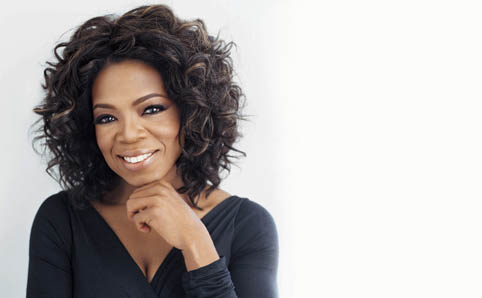Ms Oprah Winfrey to receive an honorary doctorate in Education from our university
|

|
| Ms Oprah Winfrey |
Our university will be awarding an honorary doctorate in Education to the global media icon, philanthropist and public educator, Ms Oprah Winfrey, on its Bloemfontein Campus on Friday, 24 June 2011.
Both the Council and Senate of our university gave strong support to awarding the honorary doctorate to Ms Winfrey.
By awarding the honorary doctorate, we want to recognise Ms Winfrey’s accomplishments and unparalleled work as a global media leader, as well as a philanthropist with vision and foresight in the field of education and development.
“It is a great privilege for us to be the first South African university to honour Ms Winfrey in this way and to be able to recognise a global icon of her stature,” says Prof. Jonathan Jansen, Vice-Chancellor and Rector of our university.
Ms Winfrey already holds honorary doctorates from Princeton University as well as Duke University in the United States, among others.
Reaching millions of viewers in more than 150 countries with her award-winning programme, “The Oprah Winfrey Show,” she has brought genuine change into the lives of ordinary people during its 25-year run.
Capitalising on the power of the media and her standing as a global icon, Ms Oprah Winfrey has brought a range of critical social and educational matters to the attention of her viewers. In 2000, she expanded her media reach through the successful creation of O, The Oprah Magazine, which then debuted in South Africa in 2002. Earlier this year, she extended her media influence through the launch of a US cable channel, OWN: Oprah Winfrey Network.
Her Book Club has had a dramatic and profound impact on the reading habits of America and those of people in other parts of the world, while her public charity, Oprah’s Angel Network, collected approximately $80 million over a period of twelve years in aid of building schools, women’s shelters and youth centres across the globe.
Through her private charity, The Oprah Winfrey Foundation, hundreds of grants have been awarded in support of empowering women, children and families, and The Oprah Winfrey Scholars Program, supports hundreds of university students, in the United States and elsewhere, who are committed to giving back and making a difference in their communities and country.
During a December 2000 visit to former president Nelson Mandela, Ms Winfrey pledged to build a school for girls in South Africa. This gift was to become the Oprah Winfrey Leadership Academy for Girls, which opened in 2007.
The Academy embodies her strong belief in the power of education to change the future. The Academy provides a unique educational opportunity to over 400 young girls, in Grades 7 through 12, from all over South Africa. These young women come from small rural towns and the big cities, but they share a common background in that they all come from poor families.
Ms Winfrey believes that the Academy can contribute to the development of a new generation of women leaders, deeply imbued with a sense of public service. The Academy stands as a beacon of hope in the educational landscape of this country.
More recently, Ms Winfrey has turned her attention to the failing public-school system in the United States and has brought the impact thereof on the lives of many people in America to the attention of the American public and policy-makers. Even more profoundly, she has highlighted how poor education entrenches poverty and social exclusion. In this sense, Ms Winfrey demonstrates the interconnection between education struggles in the USA and South Africa in powerful ways.
Both the Interim Director of our university’s International Institute for Studies in Race, Reconciliation and Social Justice, Mr John Samuel, and Prof. Jansen have worked for and with Ms Winfrey on matters of education at her school in Johannesburg, and in South Africa more broadly.
The South African public is invited to share in this occasion, and attend the award ceremony. A limited number of tickets will be available to the public from Wednesday, 15 June 2011 to Wednesday, 22 June 2011, and can be purchased from Computicket at an administrative cost of R10 a ticket.
Media Release
11 June 2011
Issued by: Lacea Loader
Director: Strategic Communication
Tel: 051 401 2584
Cell: 083 645 2454
E-mail: news@ufs.ac.za